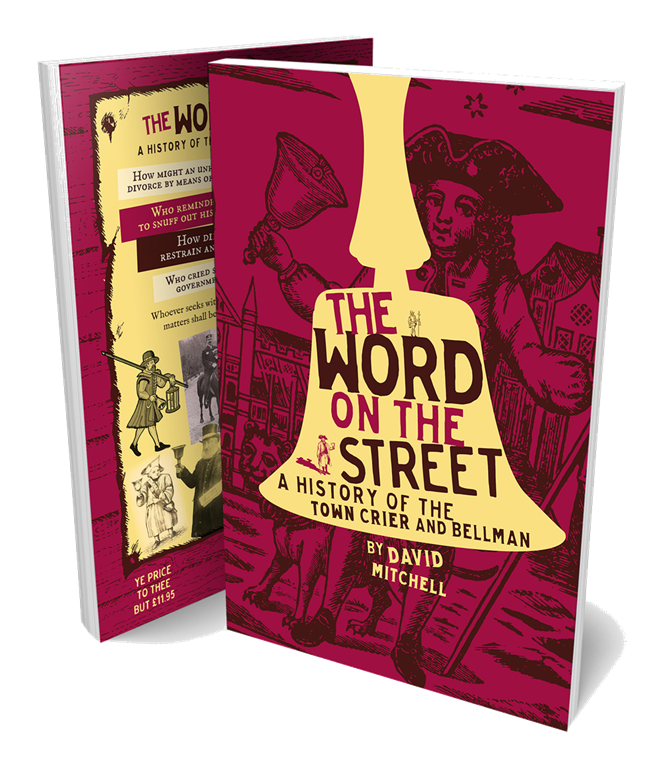 To place your order for David’s new book click the BUY NOW button at the bottom of this page or email him:
To place your order for David’s new book click the BUY NOW button at the bottom of this page or email him:
In pre-industrial Britain the town crier played an indispensable role in everyday life. If your horse strayed, your apprentice absconded, or your child went missing, it was the neighbourhood proclaimer who broadcast the loss and appealed for their return. When pigs came to market, or an unexpectedly large catch of fish arrived in harbour, the local handbell-ringer announced the good news. If you found that matrimony had not produced the anticipated advance in your happiness, you might engage the services of the town crier to officiate in a public ‘wife sale’. He was similarly the most efficient means to notify you as to when the local guilds were going to perform their mystery plays.
Even the night-time was regulated by the cries of the town crier’s colleague, the night bellman. His cries of the passing hours of the clock and ‘all is well!’ were immensely reassuring in an era of highly-combustible housing, when the only fire-fighting equipment was the leather buckets that you and your neighbours would wield if the vigilant night bellman sounded the alarm. And when the police force was as non-existent as the fire brigade, the security of your neighbourhood was likewise the responsibility of the same night bellman, patrolling the unlit streets with bell and ‘ever-biting dog’.
Curiously, the roles of the town crier and bellman have not been extensively documented by historians, until now. The Word on the Street tells the story of these neglected public servants from Shakespeare’s times right through to the present day.

